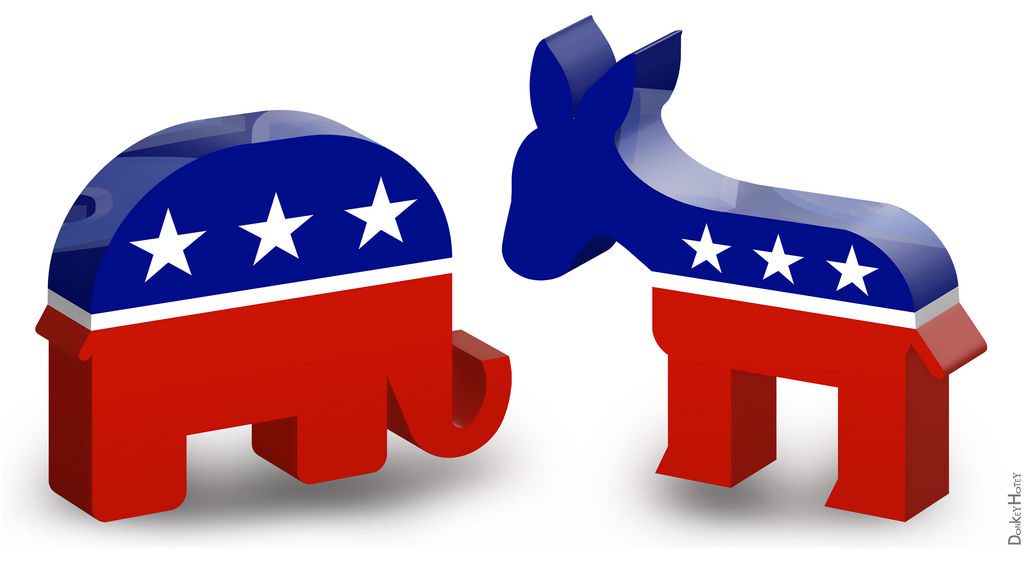 If a government employer fired an employee because of his or her political views, it would arguably violate the First and Fourteenth Amendments to the U.S. Constitution. These amendments state that U.S. citizens cannot have their free speech rights violated by the government and that the government cannot deprive citizens of a right or property without due process.
If a government employer fired an employee because of his or her political views, it would arguably violate the First and Fourteenth Amendments to the U.S. Constitution. These amendments state that U.S. citizens cannot have their free speech rights violated by the government and that the government cannot deprive citizens of a right or property without due process.
In a case involving a scandal-plagued school board in Texas, six current and former employees successfully sued the Donna Independent School District (DISD) and four members of the board of trustees, claiming that they suffered retaliation for not supporting them politically during the November 2014 election. The total damages award announced in April was $3.2 million, $1.9 million of which would be paid by the individual trustees.
School Employees Punished for Not Supporting Political Candidates
 In May, the school district trustees approved a resolution to seek mediation after the federal court judge ordered them to retain a mediator to help them decide who will pay how much of the damages, according to The Monitor. Without a resolution, the judge can make that decision for them.
In May, the school district trustees approved a resolution to seek mediation after the federal court judge ordered them to retain a mediator to help them decide who will pay how much of the damages, according to The Monitor. Without a resolution, the judge can make that decision for them.
The six plaintiffs are Arturo Castillo, Jose Campos, Martha Orozco, Francisco Cuellar, Linda Garza, and Javier Garza. The defendant trustees are Alberto Sandoval, Eloy Infante, Nick Castillo, and Elpidio Yanez Jr. The president of the board of trustees, Sandoval, had the highest recommended restitution costs at $630,000, according to court records.
The jury found that the five current school district employees and Campos (who alleged he was forced to retire) had been demoted and reassigned, resulting in wage cuts of thousands of dollars, just days before Christmas 2014. The plaintiffs claimed the timing of the notice before the holidays was meant to inflict as much emotional stress as possible.
According to the complaint, the plaintiffs had worked for the school district from 2.5 to 41 years before the retaliation took place. In addition, the complaint set forth the following facts:
- The plaintiffs had performed their jobs without incident, receiving positive performance appraisals annually.
- None of the plaintiffs had negative employment actions taken against them prior to the incidents in question, nor had they been written up for performance problems.
- In November 2014, the DISD elections resulted in a new political majority on the school board. During the election campaign, those elected and board members with whom they were aligned stated multiple times that they intended to terminate, demote, and reassign employees, naming several of the plaintiffs.
- After being sworn in, the new political majority, including the individual defendants, rewarded political allies and relatives and punished those who opposed them or who at least did not support them.
- In mid-December 2014, the plaintiffs were notified that they were being demoted and having their pay reduced. The pay cuts ranged from about $16,900 to $1,900 a year. Their new positions would start in July 2015, but the pay cuts would be retroactive to January.
- The plaintiffs stated that they were not given any reason for the changes and not allowed a process to present their side or to argue for their positions and pay rates back.
The judge has yet to make the final judgment on the awards. After that decision, the defendants could potentially appeal all or part of the decision.
This is not the only legal matter facing the DISD, according to the San Antonio Express-News:
- Two of the individual defendants in this case, Sandoval and Infante, are facing federal criminal charges of bribery, conspiracy, and attempted extortion concerning school contracts with the school district. Those charges were brought in November.
- In May, superintendent Jesus Rene Reyna was charged with one count of obstruction and one count of bribery for allegedly threatening to fire two district police investigators who were looking into allegations that he engaged in insurance theft and fraud.
- Last year, four educators were arrested for having “improper relations” with students.
Summing It Up
Government employees are afforded constitutional protections that do not apply to private employees. That is because the Constitution prevents the abuse of government power, while private employers are afforded more leeway in how they treat their employees.
In this situation, the First Amendment spells out the substantive rights (free speech); the Fourteenth Amendment spells out that there are also procedural rights (if the government tries to limit free speech); and a federal statute, 42 U.S.C. § 1983, gives an aggrieved person the ability to challenge the government in court.
If a public employee suffers an adverse employment action because of something the person said or wrote (or in this case, decides not to voice political support for a group of individuals), his or her supervisors and/or employer may be exposed to liability under federal statute 42 U.S.C. § 1983 on a theory that such action was in retaliation for the employee’s exercise of his or her First Amendment rights.
- The employee must show he or she spoke as a private citizen on a matter of “public concern.”
- The employee must prove that his or her First Amendment interests, combined with the interests of the public, outweigh the government’s legitimate interest in the efficient performance of the workplace.
- Even when the interests of the employer and employee are balanced and the balance favors the employee, he or she must still prove that the protected speech was a “substantial or motivating factor” in the employer’s adverse employment action.
The due process clause of the Fourteenth Amendment provides that a person cannot be deprived of certain substantive rights (life, liberty, and property) by a government entity unless there are constitutionally adequate procedures. Then the court would have to decide whether a plaintiff has a property interest entitled to due process protection and if so, what process is due.
- For employment rights, the root requirement of the due process clause is that the employee be given the opportunity for a hearing before losing any significant property interest (a paycheck and benefits), which need not be elaborate or exhaustive.
- Depending on the circumstances, if the pre-determination hearing does not have enough protections for the employee, a court may rule that a post-determination hearing may also be needed.
The Constitution is not an abstract list of ideals and goals. It’s a legal document that can be enforced if someone’s rights have been violated.
If you are a government employee and you believe your employer violated your constitutional rights by retaliating against you, contact our office so we can talk about what happened, how the law may apply, and what the best ways are to protect your legal rights and interests.





